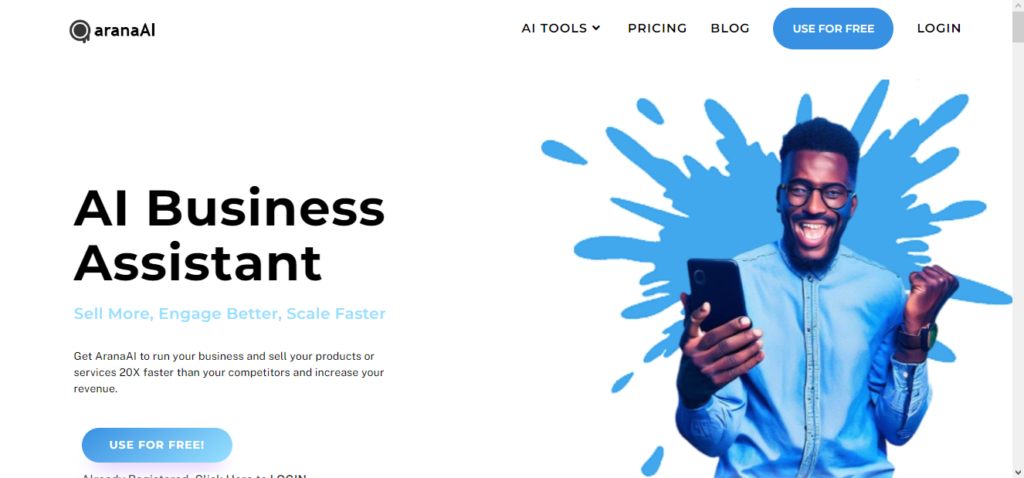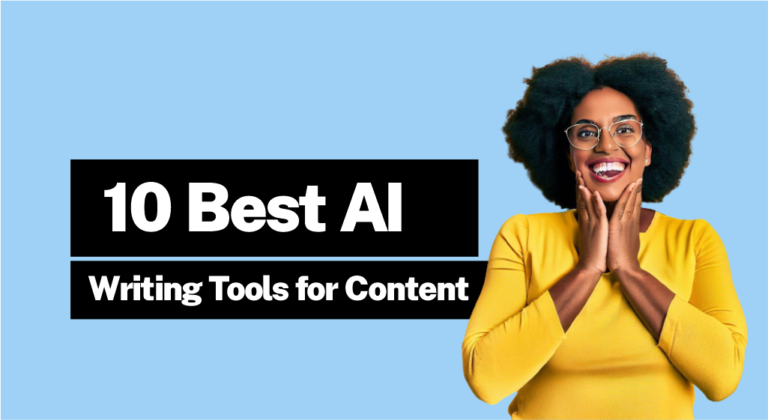Adapt or Struggle: How to Leverage AI as a Nigerian Business Owner.
Introduction
There is so much noise about Artificial Intelligence (AI) almost everywhere on the internet. You can hardly make a few clicks or scrolls without seeing something about AI, many of which would have caught your attention at some point, but may have weaned off over time and become boring. This may be quite a strange feeling, “AI bores me!” But it is happening, and the reason isn’t far-fetched. If you don’t have a use case for it or know what you can do with it, then of course, it will just be like every other innovation such as the promise of cars driving on water one day. As long as you don’t find a use case for your business, it will end up in the garbage in your mind, just another good-to-know kind of information.
What even gives credence to the idea of Nigerians not finding the right use for this all-time fastest-growing solution is the fact that, if your sources are limited to Nigerians who are sharing the excitement about AI or ChatGPT, you are likely to only hear more about how ChatGPT can create tons of content for your business. What you, however, do not know is that this is only a fraction of what AI can do for you, even if you have zero technical skills. In fact, this is only about 1 or 2% of its capacity.
If you doubt this, let me share with you my personal story of how I was able to build an AI-powered solution within two months that has over two thousand organic users within a month. I have been using AI tools for over three years now, starting with Javis (now Jasper AI for Content creation), where I was able to build a lot of experience prompting AI and getting it to do complex content for me. This gave me a sort of edge in Nigeria then because I was able to churn out thousands of original content with a very small team. However, there was always a challenge: getting AI to write relevant content in an African context that Nigerians can relate to was a bit of a headache for me.
Africa, in general, has fewer data on the internet for AI to work with, so ideas, creativity, and options were limited if you used any of the available AI tools on the internet at that time. That was a huge need and a gap to fill, and as a technopreneur, I was poised to solve this problem by creating a tool like Jasper, but this time trained better with African data, tweaked to produce more relatable content that Nigerian content creators can connect with.
When OpenAI finally announced the release of their API to the public, I jumped right on it, validated the viability of the idea of building a content-creating AI personal assistant SaaS product using AI, developed the documentation, all the entire processes, used ChatGPT to create the implementation plan, and eventually executed it.
This planning stage took me about 48 hours, which would ideally have taken several months of planning with many ‘tech bros’ in one room, rubbing minds together day and night. Given that I had a clearer picture of what I wanted, however, bouncing it off AI that has millions of data to work with, smarter than the average ten people in each of the key stages of development, was a masterstroke for me.
Within the same month, I was able to launch this product, AranaAI, with users giving real-time feedback, which has also helped to improve it. Without AI, getting a SaaS product out with little budget would have been practically impossible for me. To put it in the right context, you probably need a few hundred of million Naira to build an infrastructure, team, process, and other strategies to launch, but I achieved this without spending a million naira.
The purpose of this article is to offer Nigerian business owners valuable information about the advantages of integrating Artificial Intelligence (AI) into their operations, growth, and possibility. I will also be highlighting the potential danger of completely ignoring this wave, or not rightly positioning for the ‘new ways of running businesses, as well as the potential obstacles they may encounter during the process. Additionally, this article aims to provide strategies and use cases across different sectors in Nigeria (Finance, Health, Agriculture, etc)
What can AI do for you and your business?
Artificial Intelligence (AI) has proven to be a powerful tool for business growth, helping organizations to optimize their processes and improve their bottom line. Maybe you have not seen this yet, and this is why this article is very important for every business owner.
There are three key things about AI that you should know;
It is working with millions of Natural Intelligence, aggregating and making sense out of thousands of data that have been released to the internet since the existence of the internet. From, how business should be running, which millions of books have been written on, which the AI now has access to, to, what strategy is the best for your business as suggested by new waves of digital marketing gurus such as Neil Patel, Sabri Suby, etc. It uses these millions of information to give you ideas of what to do.
This is why I usually use the loose phrase; it is smarter than 10 average guys In any industry. Now, that you understand what is made of, how it operates, and what it can do, let’s now talk about leveraging it and I will group this using the four Ps of business, Product, Process, people, and plan/place.
Validate and improve your product
If you don’t have a product, you definitely do not have a business, right? That is exactly right. When it comes to product development, AI can help businesses enhance their offerings by analyzing customer feedback, sales data, and market trends. Through machine learning algorithms, AI can predict which products or features are likely to perform well in the market and assist businesses in tailoring their offerings to meet customer demand. AI can also aid in the design and development process by generating 3D models and simulations, allowing businesses to test and refine their products before launching them. It can provide you with feedback from millions of data points it is working with, regarding how to improve the product, and the likely adaptability potential of the product. If you want frank feedback, you can describe the product and its target audience, and inquire whether it will fail or succeed. These are probabilities, but they provide a good starting point and can save millions in experimentation and testing costs.
It takes over your repetitive tasks
At the heart of what weighs down a business and consumes most resources, especially in Nigeria where the adoption of technology in business is slow, are repetitive tasks. From the personal assistant whose sole job description is to follow the CEO to book appointments and meetings, to the customer service team spending 50 to 60% of their time on documentation, sending emails, and relaying information from one team to another and to the customer, or to the store manager spending days taking physical inventory of products and services, all of these are repetitive tasks that can be completely automated using AI, which would be more efficient and have fewer errors.
AI can optimize business processes, reduce operational costs, and increase efficiency. For instance, AI-powered chatbots can handle customer inquiries and support, freeing up employees to focus on more critical tasks. Additionally, AI can assist with supply chain management by predicting demand and optimizing inventory levels. In manufacturing, AI can analyze production data and identify areas for improvement to streamline operations and reduce waste.
AI can support employees by providing data-driven insights and automating repetitive tasks. It can also assist in recruitment by analyzing resumes and identifying the best candidates for a job. Moreover, AI can help with employee training by providing personalized learning experiences based on individual performance data.
It possibly has better evidence-based facts than you.
I will refer to my previous phrase again: ‘better than 10 average people in a particular sector or field.‘ Imagine hiring 5 mid-level marketers; AranaAI or Open AI’s ChatGPT may perform better than these 5 combined based on different factors (arguably), especially when it comes to providing insights and data. When it comes to planning and implementing effective marketing strategies, AI can analyze customer data and identify patterns and trends, enabling businesses to deliver targeted marketing campaigns to specific demographics. Furthermore, AI can help optimize physical locations by analyzing foot traffic and predicting consumer behavior.
Use Cases: How to use AI in Key Sectors in Nigeria
Let me share with you, a few hypothetical use cases for AI Solutions in Business and building products in Nigeria
Case Study 1: Health Care Services
AI in Healthcare The healthcare sector in Nigeria is faced with numerous challenges, including a shortage of healthcare professionals, inadequate infrastructure, and a high disease burden. AI has the potential to revolutionize healthcare delivery in Nigeria by improving diagnosis, treatment, and patient outcomes.
One notable example of successful AI adoption in healthcare can be the use of AI-powered medical imaging technology by hospitals such as the Lagos University Teaching Hospital (LUTH). The technology has been used to analyze medical images and detect anomalies, leading to faster and more accurate diagnoses. This has improved patient outcomes and reduced the workload of healthcare professionals.
Here are some other examples of how AI can be used in healthcare:
- Disease diagnosis: AI-powered medical imaging technology can analyze medical images and detect anomalies, leading to faster and more accurate diagnoses.
- Medical transcription: AI can transcribe medical dictations, reducing the workload of healthcare professionals and improving the accuracy of medical records.
- Medical research: AI can analyze large amounts of medical data to identify patterns and relationships, which can be used to develop new treatments and improve patient outcomes.
- Patient monitoring: AI-powered sensors can monitor patients’ vital signs and provide real-time data to healthcare professionals.
- Drug development: AI can identify potential drug candidates and predict their efficacy, speeding up the drug development process.
- Personalized medicine: AI can analyze a patient’s medical history, genetics, and lifestyle to develop personalized treatment plans.
- Clinical decision support: AI-powered tools can provide evidence-based recommendations for diagnosis and treatment to healthcare professionals.
- Telemedicine: AI-powered chatbots can provide basic medical advice to patients remotely, improving access to healthcare in rural areas.
- Electronic health records: AI can help healthcare providers organize and manage patient data, making it easier to track patient history and provide better care.
- Medical education: AI can create interactive medical training materials, improving the knowledge and skills of healthcare professionals.
Case Study 2: AI in Agriculture
Agriculture is the backbone of the Nigerian economy, and the sector has seen tremendous growth in recent years. AI has the potential to further enhance productivity and efficiency in the sector by providing insights into weather patterns, soil conditions, and crop yields.
One example of successful AI adoption in agriculture is the use of drones by the Kaduna State government to monitor farmland and detect crop diseases. The drones are equipped with AI-powered sensors that can detect changes in crop health and alert farmers to take action before a disease outbreak occurs. This has led to improved crop yields and reduced losses for farmers.
Other Case Studies;
- Crop monitoring and disease detection using drones equipped with AI-powered sensors.
- Precision agriculture uses AI-powered analytics to optimize crop yields and reduce waste.
- Weather forecasting using AI-powered models to predict weather patterns and improve crop management.
- Crop yield prediction using machine learning algorithms to analyze data from sensors, satellite images, and weather forecasts.
- Soil analysis using AI-powered sensors to detect soil nutrients, moisture levels, and acidity, leading to better crop management practices.
- Automated irrigation using AI-powered sensors to optimize water usage and reduce waste.
- Crop sorting and grading using computer vision and machine learning algorithms to automate the process and improve accuracy.
- Pest control uses AI-powered traps and sensors to detect and monitor pests, leading to reduced use of harmful pesticides.
- Livestock monitoring using AI-powered sensors to track animal health, behavior, and performance, leading to better herd management.
- Farm management uses AI-powered platforms to automate tasks such as inventory management, logistics, and supply chain management.
Case Study 3: AI in Finance
The financial sector in Nigeria is one of the most dynamic in Africa, with a growing number of fintech startups leveraging technology to provide innovative financial services. AI has the potential to further enhance financial services by improving fraud detection, risk management, and customer experience.
For instance, a successful AI adoption in finance is the use of chatbots by banks such as Access Bank and Zenith Bank to provide personalized customer service. The chatbots are powered by AI and can handle a wide range of customer inquiries, reducing the workload of customer service agents and improving customer satisfaction. How exactly will this chatbot be different from the existing one the banks have? It’s simple current technology has a library that is thousands of times smarter.
Here are 10 potential use cases of AI in the finance sector in Nigeria:
- Fraud detection and prevention: AI can analyze transaction data to identify patterns and anomalies that may indicate fraudulent activity. This can help financial institutions prevent fraudulent transactions from taking place.
- Customer service: AI-powered chatbots can interact with customers and provide personalized service, answering their questions and addressing their concerns. This can help reduce the workload of customer service agents and improve customer satisfaction.
- Risk management: AI can analyze large volumes of data to identify potential risks and help financial institutions manage them more effectively. This includes assessing credit risk, identifying market risks, and monitoring compliance with regulations.
- Investment analysis: AI can analyze market data and provide insights into investment opportunities. This can help investors make more informed decisions about which securities to buy or sell.
- Trading: AI-powered trading algorithms can analyze market trends and make automated trades. This can lead to more efficient and profitable trading.
- Credit scoring: AI can analyze a wide range of data to assess credit risk and provide more accurate credit scores. This can help financial institutions make more informed lending decisions.
- Fraud prevention in loan application: AI can detect patterns of fraudulent behavior in loan applications. This can help financial institutions avoid granting loans to fraudulent applicants.
- Personal finance management: AI-powered personal finance management apps can help individuals track their spending, set financial goals, and make informed financial decisions.
- Compliance monitoring: AI can help financial institutions monitor compliance with regulations by analyzing large volumes of data and identifying potential violations.
- Insurance underwriting: AI can analyze data and identify risks to help insurance companies make more accurate underwriting decisions.
Application of AI in other sectors
Automobile
- Autonomous driving: AI-powered self-driving cars that are capable of sensing the environment, identifying obstacles, and making driving decisions without any human intervention.
- Predictive maintenance: AI-powered systems that can predict when a vehicle needs maintenance or repair, thereby reducing downtime and improving efficiency.
- Voice recognition: AI-powered voice recognition systems that can understand and respond to driver commands, making it easier and safer to interact with a vehicle’s features.
- Driver behavior analysis: AI-powered systems that can monitor driver behavior and provide feedback to improve safety and efficiency.
- Traffic analysis: AI-powered systems that can analyze traffic patterns and provide real-time recommendations to drivers, such as alternate routes or speed adjustments.
- Intelligent navigation: AI-powered navigation systems that can provide personalized routes based on a driver’s preferences, traffic patterns, and weather conditions.
- Advanced driver assistance systems (ADAS): AI-powered systems that can assist drivers with tasks such as parking, lane changes, and collision avoidance.
- Vehicle-to-vehicle (V2V) communication: AI-powered systems that enable vehicles to communicate with each other, improving safety and reducing traffic congestion.
- Predictive modeling: AI-powered systems that can analyze data on vehicle usage, traffic patterns, and weather conditions to predict demand for ride-sharing services or delivery routes.
- Natural language processing (NLP): AI-powered systems that can interpret and respond to natural language queries, making it easier for drivers to access information about their vehicles and surroundings.
Education
- Personalized learning: AI can analyze student data such as learning style, interests, and academic performance to provide personalized learning experiences tailored to each student’s needs.
- Adaptive assessments: AI-powered assessments can adjust the difficulty level of questions based on a student’s performance, providing more accurate and efficient assessments of their knowledge and understanding.
- Intelligent tutoring systems: AI-powered tutoring systems can provide personalized feedback to students and offer assistance when they are struggling with a particular concept or subject.
- Chatbots for student support: AI-powered chatbots can provide students with instant support and guidance on a wide range of issues such as enrollment, scheduling, and academic performance.
- Automated grading: AI-powered grading systems can reduce the workload of teachers by automatically grading assignments, essays, and exams.
- Predictive analytics: AI can analyze student data and predict which students are at risk of falling behind, allowing teachers to provide targeted support and intervention.
- Smart content creation: AI-powered tools can help teachers create customized learning materials that are tailored to the needs of their students.
- Natural language processing: AI-powered language processing systems can help students with language learning by providing instant feedback on pronunciation, grammar, and syntax.
- Automated transcription: AI can automatically transcribe lectures and meetings, providing accurate and efficient note-taking for students.
- Virtual and augmented reality: AI-powered virtual and augmented reality systems can provide immersive learning experiences that simulate real-world scenarios, enhancing student engagement and understanding.
Engineering
AI has the potential to revolutionize the engineering industry in Nigeria by improving efficiency, reducing costs, and enhancing safety. Here are ten potential use cases of AI in engineering:
- Design optimization: AI can help engineers optimize designs for a wide range of applications, from aerospace to consumer products. By using AI-powered simulations and algorithms, engineers can quickly identify the best design parameters for a given set of constraints.
- Predictive maintenance: AI can be used to predict equipment failures and schedule maintenance proactively. This can help reduce downtime and maintenance costs while improving the reliability of critical systems.
- Quality control: AI can be used to automate quality control processes in manufacturing, reducing the risk of defects and improving product consistency.
- Process optimization: AI can be used to optimize complex manufacturing processes, such as chemical reactions or material processing. By analyzing large amounts of data, AI can identify process inefficiencies and suggest improvements.
- Supply chain optimization: AI can be used to optimize the supply chain for engineering projects, from raw materials to finished products. By analyzing data on supplier performance, logistics, and demand, AI can help engineers make more informed decisions about sourcing and logistics.
- Energy optimization: AI can be used to optimize energy usage in engineering systems, such as HVAC or lighting. By analyzing data on energy consumption patterns, AI can identify opportunities for energy savings and suggest changes to optimize energy usage.
- Building design: AI can be used to optimize building design for energy efficiency, safety, and comfort. By using AI-powered simulations and algorithms, engineers can quickly identify the best building design parameters for a given set of constraints.
- Autonomous systems: AI can be used to develop and optimize autonomous systems, such as drones, robots, and self-driving cars. By using AI-powered sensors and algorithms, these systems can navigate complex environments and make intelligent decisions in real time.
- Environmental impact analysis: AI can be used to analyze the environmental impact of engineering projects, from construction to operation. By analyzing data on emissions, waste, and energy usage, AI can help engineers identify opportunities to reduce environmental impact.
- Structural analysis: AI can be used to analyze the structural integrity of engineering systems, such as bridges, buildings, and aircraft. By using AI-powered simulations and algorithms, engineers can identify potential failure modes and optimize designs for safety and performance.
Marketing
- Personalized marketing: AI can create personalized marketing campaigns by analyzing customer data and identifying individual preferences and behaviors.
- Predictive analytics: AI can predict future customer behavior and trends by analyzing large amounts of data and identifying patterns.
- Content creation: AI can create content such as blog posts, social media posts, and videos based on customer data and preferences.
- Customer segmentation: AI can segment customers based on demographics, behavior, and preferences, enabling marketers to create targeted campaigns.
- Chatbots: AI-powered chatbots can provide customer service and answer queries 24/7, improving customer satisfaction and reducing the workload of customer service agents.
- Ad targeting: AI can identify effective ad targeting strategies by analyzing customer data, and improving the ROI of marketing campaigns.
- Sentiment analysis: AI can analyze customer feedback and sentiment on social media and other channels, enabling marketers to quickly identify and respond to customer concerns.
- Pricing optimization: AI can analyze pricing data and customer behavior to optimize pricing strategies and maximize revenue.
- Email marketing: AI can personalize email marketing campaigns based on customer behavior and preferences, improving engagement and conversion rates.
- Voice search optimization: AI can optimize websites and content for voice search as it becomes increasingly popular, improving search rankings and visibility.
How can you build these products or solutions
Are these viable products to build?
All the cases I have shared above have a huge potential for breaking into the core market in Nigeria because they are people-centered solutions targeting Nigerians in all the mentioned sectors. Most of them are challenges faced by hundreds of thousands of people or even millions of people, making them high-demand solutions.
Do you need millions of dollars to execute?
Not all of them. For most, you can use existing natural language models that are available such as OpenAI API or imaging from either OpenAI or Stable Diffusion’s API. All you will probably need to do is retrain the model in the playground and build all the background prompts and the user interface
How can you build these products?
If you are using an existing open-source API and have it all figured out, you can implement and execute within 2 to 6 months for some of these products, while others may take more time. However, never forget that you can’t possibly sit on any idea that you may have right now, as there may be other people who are also planning to implement the same idea.
The danger of ignoring the current wave of AI innovations
The use of Artificial Intelligence (AI) has become prevalent across various industries, offering businesses several advantages, including enhanced efficiency, productivity, and decision-making capabilities. Small businesses especially, those who can not afford to hire a large team now have a once-in-a-lifetime opportunity to pull their weight and cover some grounds using AI to optimize productivity.
However, despite its numerous benefits, the Nigerians, that we are, many of us do not understand or cannot relate, perhaps, underestimate or neglect AI’s potential. Such businesses run the risk of lagging behind their competitors, losing valuable opportunities to improve their operations, and ultimately becoming obsolete in an increasingly AI-driven world. Therefore, you must comprehend the dangers of disregarding AI and take proactive measures to adopt and implement it.
Let me highlight a few below;
Ignoring AI can result in a competitive disadvantage for businesses as their competitors leverage AI to automate routine tasks, streamline operations, and make data-driven decisions faster and more accurately, leading to cost savings, improved efficiency, and better customer experiences.
Businesses that ignore AI may miss out on opportunities to transform industries, create new markets, develop new products and services, and improve customer engagement, limiting their growth potential and ability to innovate.
Also, when you fail to take advantage of AI and find a use for it now. It can leave businesses behind in a rapidly evolving technological landscape, risking obsolescence as AI is integrated into an increasing number of industries.
Conclusion
My goal in this article is to demystify the perceived challenges of applying AI in the Nigerian context, explain how to navigate these challenges, and create a product that genuinely solves people’s problems. If there are any sectors I didn’t cover in this article that you would like me to discuss, please send me an email at info@aranaweb.com.







Pingback: Arana AI: How to Scale AI Content Creation